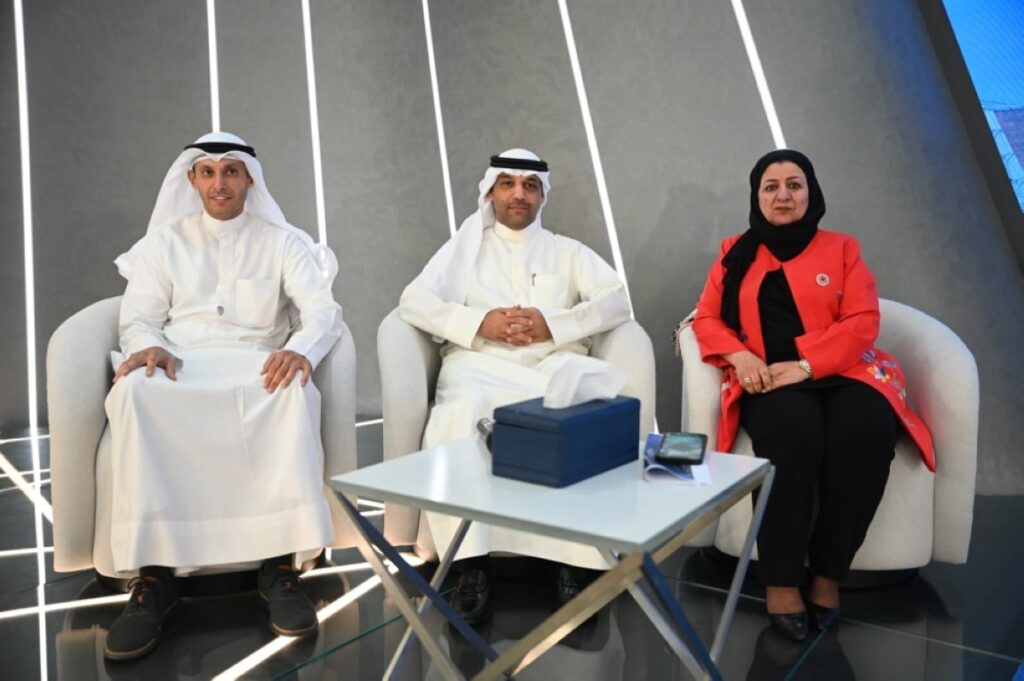KUWAIT: The Ministry of Education on Wednesday presented its latest updates and preparations for the 2025–2026 school year in a detailed briefing at the center for government communication. Acting Undersecretary of the Ministry of Education Mohammed Al-Khaldi emphasized that the new academic year will serve 520,271 students — 422,744 in public schools and 97,527 in private schools — supported by more than 131,000 teachers and administrators.
School expansions
He outlined that 10 schools are set to operate in the coming year, including seven in the new city of Mutlaa, one in Ishbiliya, and two specialized schools designed for students with hearing impairments and cochlear implants. Al-Khaldi pointed out that more than 15,000 pieces of furniture, 900 computer lab devices and 100 interactive screens have already been provided to support these institutions. Staffing preparations include 800 teachers and 183 administrators, while cooperation with the Ministry of Health will ensure that school clinics are established and upgraded.
On health and nutrition, Acting Director General of Support Services Mariam Al-Enezi underscored the importance of new canteen regulations issued by the Public Authority for Food and Nutrition. She explained that hydrogenated fats have been banned and schools are now required to provide healthier alternatives such as low-sugar and low-fat drinks, 100 percent natural juices,and bottled water meeting Gulf standards.
Al-Enezi stressed that canteens will also be expected to supply seasonal fruits and vegetables, along with whole-grain and gluten-free baked goods filled with fresh ingredients prepared on the same day. Biscuits and wafers will only be permitted with natural fillings like cocoa, dates or dried fruits. She highlighted that schools must also cater to students with special dietary needs, including those with lactose, gluten or nut sensitivities. Meals will be capped at 450 calories for elementary students and 600 calories for middle school students.
1,400 free buses
She also revisited the ministry’s pilot project with Kuwait Flour Mills Company, designed to improve food quality in school canteens. On services, she reaffirmed that 1,400 free buses will transport intermediate and secondary students, with registration handled by school administrations. Each school will additionally appoint a dedicated educational coordinator to supervise these measures.
Curriculum reforms were another focal point of the presentation. Al-Enezi confirmed that 88 updated textbooks have been released across all grade levels. She highlighted the introduction of artificial intelligence in Grade 10 and 11 computer science courses, the addition of programming to middle school IT classes and adjusted schedules in primary education to align with the new curricula. She stressed that the updated content also strengthens national identity, noting that social studies will now be introduced in early grades through the “My Homeland” series, while grades six to nine will include a new supplement titled “Reflections on Kuwait’s Heritage.”
To proceed with the ministry’s plan of reducing the weight of schoolbags, textbooks have been divided into four parts, while teaching methods now focus on critical thinking, problem-solving and real-world applications rather than memorization. Interactive resources — such as QR codes, audiovisual material and CEFR-aligned language units — have also been integrated, ensuring the reforms align with 21st-century skills and Kuwait’s Vision 2035.
Curriculum reforms
Al-Khaldi also highlighted “Balegh,” the digital platform that enables schools to report and track maintenance issues in real time, noting that it has already achieved an 80.8 percent completion rate for service requests. Assistant Undersecretary for Educational Affairs Hamad Al-Hamad pointed out that 1,380 teachers have been reassigned and 687 principals and vice-principals appointed, stressing that the process was carried out transparently using technology-driven systems without human interference. He also mentioned the launch of “Hamad,” an AI-powered chatbot that will support students, teachers and parents through the ministry’s website.
Al-Khaldi revisited the ministry’s five-year educational plan, which is designed to curb absenteeism, regulate staff transfers electronically and make every instructional day count toward student outcomes. As part of this framework, he reaffirmed that the last week of Ramadan will be a holiday for students, teachers and administrators, without reducing the official number of school days.

